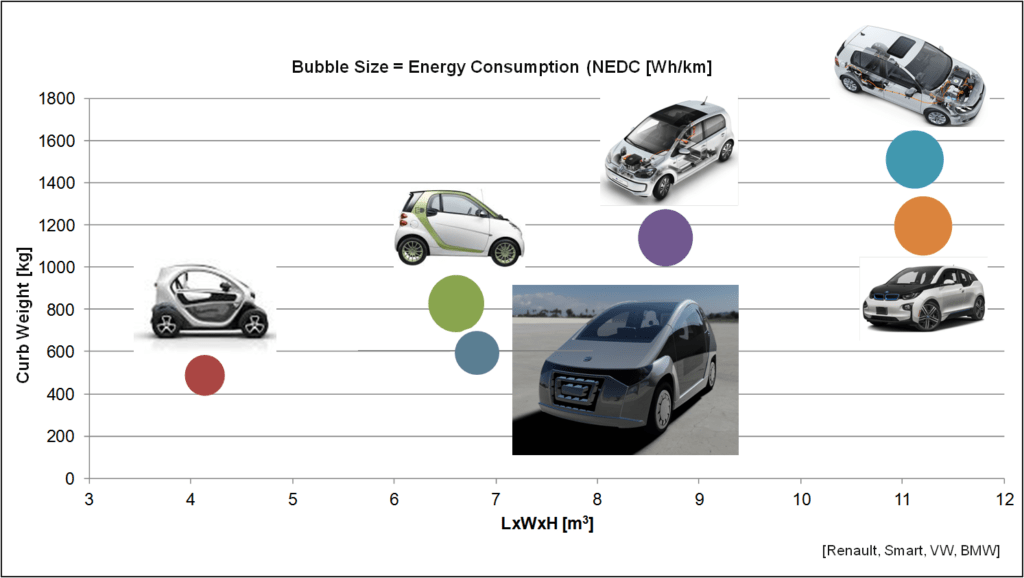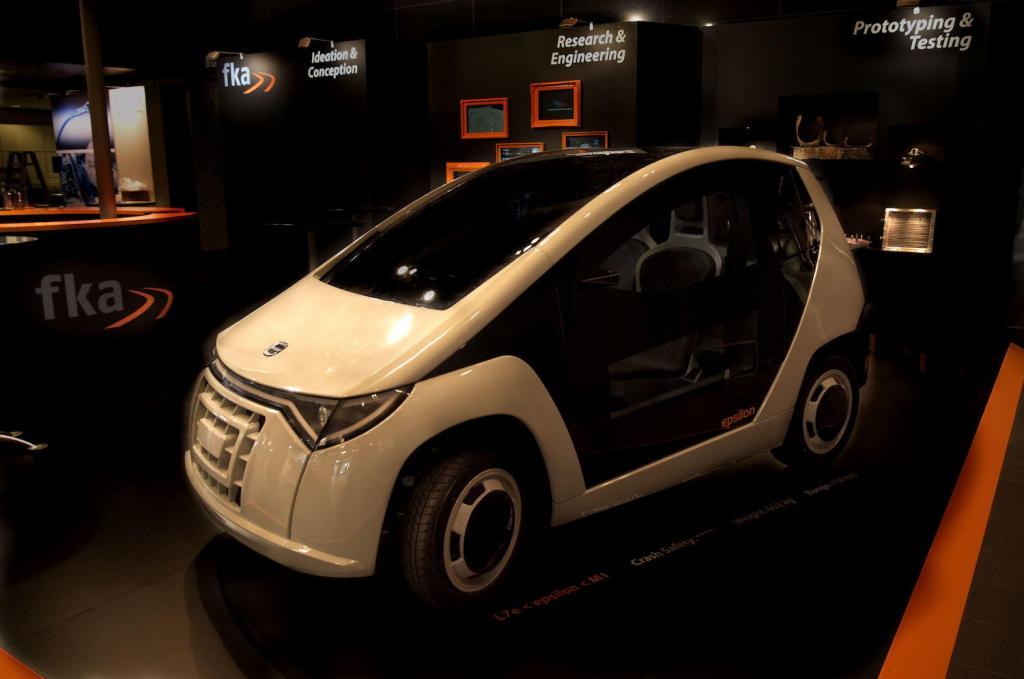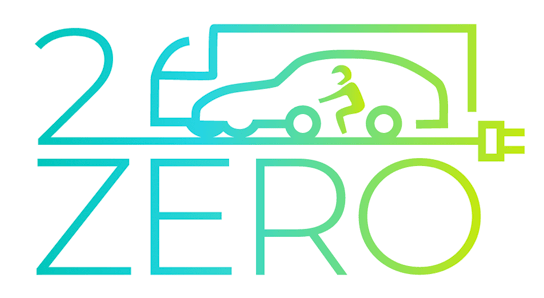Epsilon project

- Website: http://www.epsilon-project.eu
Larger and more densely populated urban areas are causing new challenges to mobility systems in terms of congestion as well as pollutant and noise emissions. Funded by the European Commission within the Seventh Framework Programme the epsilon project is focusing on the development of an innovative electric vehicle concept specifically designed for the typical transport tasks in urban areas. The epsilon vehicle will be considerably lighter, more energy efficient and require less road space than today’s sub-compact cars, still offering the same level of safety. Compared to powered two-wheelers, epsilon will provide higher safety, transport capacity and driving comfort under all weather conditions. Offering at the same time an appealing driving performance at affordable costs, the epsilon vehicle will address not only the ecological and societal, but also the economic dimension of sustainable mobility, defining a new vehicle class by closing the gap between ultra light vehicles (L7e) and conventional passenger cars (M1).
Commuting is the main use case for urban individual transport, followed by leisure time. To address customer needs for these tasks, a rather minimalistic vehicle concept has been derived, with purchase costs and TCO (Total Cost of Ownership) being key aspects. Safety still remains to be the most important feature though. Both active and passive safety are prerequisites that must be provided to the customer. The vehicle needs to be safe among the other actors of the city traffic, and the occupants have to feel safe while driving. Practicability is another key characteristic for the customer, focusing on short recharge cycles and sufficient driving range. Also, despite road space becoming more and more congested, roominess and comfort remain important. A luggage compartment is requested, but the possibility to accommodate four passengers, even for small trips, is preferred.

To achieve the challenging targets for vehicle efficiency and safety, and at the same time provide a high level of comfort and driving performance, a lean and aerodynamic vehicle shape was chosen in combination with a holistic lightweight design approach. Based on this lightweight approach, a CFRP-Al-space-frame body was designed and analysed in full vehicle simulations with respect to vehicle requirements such as stiffness, NVH and safety according to Euro NCAP. The epsilon concept was subjected to a continuous weight management to reach the weight target of 600 kg total curb weight. Static simulations show a very good bending and torsional stiffness of the vehicle as well as a very good lightweight quality index. Passenger protection and restraint systems were analysed on system level based on full vehicle crash pulses, and pedestrian safety was also analysed by FEM simulations. Several functional analyses and prototype crash tests were conducted to validate the simulation results. Based on this broad range of tests and simulations a four star Euro NCAP safety rating would be realistic.
Finaly a full running prototype vehicle was built to validate the driving performance of the vehicle and to promote the potential and benefits of this new vehicle class to various stakeholders and the general public.

Project coordinator:
Kristian Seidel
Head of Body Department, fka GmbH Aachen (Germany)
seidel@fka.de
Project partners:
Centro Ricerche Fiat (Italy), Autoliv (Sweden), HPL Prototypes (United Kingdom), Axon Automotive (United Kingdom), Fraunhofer -Gesellschaft (Germany), Kompetenzzentrum – Das virtuelle Fahrzeug Forschungsgesellschaft (Austria), Technische Universität Graz (Austria), Institute for Automotive Engineering (ika) RWTH Aachen University (Germany)
Website: http://www.epsilon-project.eu

This project has received funding from the European Union’s Seventh Framework Programme for research, technological development and demonstration under grant agreement no 605460.


